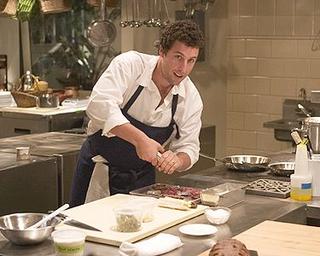

Hurricanes and Compassion
People often want to know if human beings are basically good, or fundamentally evil. In the most challenging of circumstances, the real nature of people is exposed. Saturday evening and night I went to the George R Brown Convention Center to help. I tried to go to the Astrodome, but they had all of the volunteers they could use. I think that is a testimony to the goodness of people. I have heard some preachers debating the need for international aid, and I spoke up and said that it was a funny notion. It is not that we do not need the community of human kind to pitch in, it was just that in the heat of the moment, no one is saying, "Where are the French when you need them!"
I was a bit nervous as I went to work at the GRB. That lost feeling is troublesome. If anyone asked me a question, I would not know the answer. I did not know where to stand or what to do. I found myself in line to receive a family that was getting off a bus from Louisiana. There were eight people, four young boys. My job was to take them through the line to get shoes (if they needed them), two days worth of clothing, soap and towels and tooth brushes and the like. We spent about three hours together. One young boy who was about 8, named Kahlil warmed up to me right away. He became my leaders. Where he wanted to go, we went. His brother Raheem was a bit more reserved. The older boy Keiron, was confident and serious. The littlest boy just wanted things to be normal. Then one of them said, "Where are the French when you need them!" (Not really.)
They were from the west bank of the Mississippi. Water rose into the second level of their house. They heard gunfire outside their house. Then some military men came and told them to get out of their house. They crawled through a window into deep water. They did not tell me about snakes and gators. They did say that they reached some dry ground and a man who had ‘borrowed’ a car from a car lot picked them up and took them to the mall. The mall was horrid. They did find their way onto a bus and they arrived in Houston Saturday night, five and a half days after the storm. We settled them in to their air mattresses and had a prayer, and I went to the next task.
I wandered about the GRB looking for a way to make myself useful. I found my way into the volunteer line. I did not know that was the starting place! A lady asked for two people to come with her, so I went. I spent the next four hours working security, checking baggage for contraband. Anything that could not be brought on to an airplane or into a prison could not be brought into the GRB. It was hard to taker their cigarettes and lighters. I took one woman’s comb that had a sharp and pointed end, and she began to cry. I felt terrible. The last bus in that night was full of special needs children. We did not search their bags. I was thankful.
Then I went home to my air-conditioned home. Troubling.
Are people good? I think so. We are compassionate. Our hearts ache. I am thankful for that.











